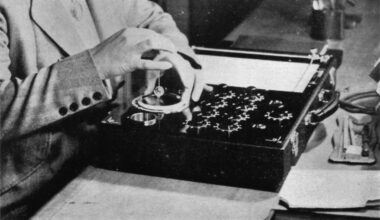Former Spacemen 3 big wheel Pete Kemper discusses his collaborations with everyone from Delia Derbyshire to Silver Apples and explains why he’s resurrected his Sonic Boom alias after a gap of 30 years
When we speak, it’s by phone, without the aid of Zoom or FaceTime or any other visual aid of the lockdown era. But sound paints a picture of Peter Kember’s Portuguese home in Sintra, near Lisbon, which he shares with his wife. The tweet of birds and the rasp of chairs against stone, as well as his sipped drink and smoked cigarette, make it easy to imagine this rural idyll between the Mediterranean and the Atlantic. Kember came here four years ago, leaving behind a half century of life in the Warwickshire town of Rugby.
“I’m a natural self-isolator,” he says, his voice a pleasingly laid-back drawl whose hippyish tone hides a sharply focused intellect. “I try to build my environment as a tranquil spot, a retreat from when I’m on tour, so it’s not been too hard for me. I almost feel guilty about being asked to stay home for six weeks.
“I really like the surroundings here, it’s a beautiful country through luck of geography and geology. I like the way everything looks, a little wild and a little tropical. It’s a gardener’s paradise and I’m taking advantage of that as much as possible, although I think ‘avant-gardening’ is probably the term for my particular style.”
A throwaway comment about how gardening seems far removed from the rock ’n’ roll lifestyle casts a clear focus on Kember’s perspective on the universe, especially given that his earliest and still most incendiary contribution to music came in the 1980s with Spacemen 3, a band that specialised in raw and singularly uncompromising guitar symphonies.
“I’m not sure what rock ‘n’ roll is,” he says, moving away from horticulture. “I like to try and figure things out for myself and do it my way. I hate that portrayal of musicians as stars, suggesting that because of what they do they’re somehow better than other people. I do not want to be part of that at all, so not being rock ‘n’ roll suits me.”

We’re discussing the densely electronic forthcoming album ‘All Things Being Equal’, Pete Kember’s first release under his Sonic Boom alias since his 1990 solo debut, ‘Spectrum’, which came out a year before the already-disintegrating Spacemen 3’s final recordings. That he’s chosen to resurrect this long-standing personal alter ego after three decades looks good on the press release. It’s something of a red herring, though, because Kember hasn’t exactly been away.
Since 1994, Kember has released 11 albums as EAR (Electronic Audio Research), including 1996’s ‘Beyond The Pale’ with Kevin Shields of My Bloody Valentine. He has also recorded four albums as Spectrum (not to be confused with the Sonic Boom record title), most notably 1997’s minor electronic classic ‘Forever Alien’ and a 1999 collaboration with Silver Apples. His choice of alias more often reflects the studio arrangements or compositional dynamics, rather than whether he’s using a guitar or a synthesiser as his primary instrument.
“EAR was what it said on the can,” notes Kember. “It was always meant to be experimental, to be about sound rather than songs. No EAR pieces are songs. None of them have lyrics. The Spectrum records were collaborations with other people in a band situation. All of them were songwriters, even though I wrote 90 per cent of the material.
“With Sonic Boom, it’s also song-based, although it’s essentially just me,” he continues, noting that ‘All Things Being Equal’ has only two guest performers – Luna’s Britta Phillips playing bass on ‘I Feel A Change Coming On’ and Animal Collective’s Noah “Panda Bear” Lennox adding vocals to ‘Just A Little Piece Of Me’. “I knew this record was going to be all electronic and I didn’t feel the need for much collaboration with it. I work with other people when I’m producing and doing one-off projects, so I just wanted to do exactly what I wanted on here, to try and create something that I was really happy with.”
There’s also a viscerally pragmatic reason for the return of Sonic Boom’s name to the album sleeve.
“I noticed that promoters of my live shows would sometimes bill Spectrum as Sonic Boom. I asked them why, when they knew it was a Spectrum show? They would say, ‘Yeah, but if we bill it as Sonic Boom, more people will come’. More people know who Sonic Boom is because of the growth in awareness of Spacemen 3 through the internet over the last couple of decades. I’m not sure how many more records I’ll make… so I wanted to give this one the best shot that I could.”
Those who have followed Kember’s releases over the decades will know that his music is not an exercise in magpie-like retro-classicism. His approach comes from the days before the internet, when an act like hooking up with Simeon Coxe from Silver Apples was a declaration of personal artistic exploration, rather than the end-product of a few hours of digging online.
Synthesisers have long played a part in Kember’s recordings – he points to Spacemen 3’s final single, ‘Big City’, which sounds like Neu! funnelled through the protean acid house of Orbital – but the tributes to his analogue heroes seem particularly overt on ‘All Things Being Equal’.
“The core of most of the tracks is a monophonic modular synthesiser, with a 16-step sequencer,” he says. “I was trying to get a fluidity within the sequences and the textures of the sounds themselves, to create something organic. I wanted a tonal breadth, with some bright, high-intensity, high-tone action, and I got that partly by only using high-pass filters.”
A key inspiration was the late Delia Derbyshire, who Kember knew and worked with on several occasions.
“There’s a track on the album called ‘I Can See Light Bend’ and the working title was ‘Doctor Why’, a reference to ‘Doctor Who’ of course,” he says of his nod to the pioneering composer. “I felt I was channelling a bit of Delia on that. There are no other keyboards, just one shuddering monophonic synthesiser, plus percussion and vocals. Delia used stepped envelopes and she wouldn’t just use a rising attack, the sound would rise in steps like a staircase, which I always thought was one of her trademarks. Actually, it was like her laugh, which very much had that kind of upwards staircase motion. I can hear it in some of her works. It’s somehow part of her essence.
“Delia lived in the next town to me. She grew up round the corner from my grandmother’s house, where I did a lot of growing up myself. We had a lot in common and I feel lucky that I made the effort to find her and speak to her and become friends with her. Everything that ensued from that was a magical experience.”
Kember interviewed Derbyshire for the magazine Surface in 1998. She subsequently gave some advice and had some input to the EAR albums ‘Vibrations’ (2000) and ‘Continuum’ (2001), the latter recorded shortly before her death. The pair composed one song together, ‘Synchrondipity Machine’.
“I realised how little Delia was recognised then,” notes Kember. “It’s been incredibly heartening in the years since to see her being taught on music technology courses all around the world, to see her being acknowledged for her pioneering input. It’s sad to have to say it, but what she achieved in her era as a woman was amazing. She had very high standards and she wasn’t interested in doing anything unless she felt it was going up to the next level.
“I think she was damaged by her brush with the commercial side of the music industry and by the way she was treated by the BBC. I think this made her remove herself for some decades. But upon talking to her, it was clear that electronic music was still part of her daily life. She never lost her passion or interest. She certainly had a lot of time for me too, explaining to me some of the magic complexities of the mathematics of music.”
Kember also cites Suicide as an influence on the new Sonic Boom album, particularly Martin Rev’s 1985 solo work ‘Clouds Of Glory’, which fed into the dense, droning track ‘Tawkin Tekno’. Another old associate, Simeon from Silver Apples, is apparent too.
“His music has been in my life since I was in my 20s. Again, there was something fantastically organic about the Silver Apples sound, with Simeon’s quasi proto-synth that he built out of test oscillators and filters. He wrestled something wonderfully symbiotic out of it, which became more than the sum of its parts. He’s an awesome dude, one of the forefathers of electronic music, but very modest and unassuming.”
The final song on ‘All Things Being Equal’, ‘I Feel A Change Coming On’, acts almost like a sleek contemporary counterpart to Spacemen 3’s ferocious, apocalyptic 1988 protest song ‘Revolution’, with Kember intoning “I feel that something’s got to give / Something in the way that we live” over a circling synthesised riff.
“I didn’t want to release an album of just love songs or songs about my life,” he explains. “I felt I had something to say about the planet, about being part of a problem or being part of a solution, where I could maybe have some small say in trying to steer us away from what we’re doing to the Earth and to ourselves.”
This mode of thinking fed into Kember’s decision to leave Rugby after 50 years. He describes his former home town as “a distribution hub… unrecognisable as the place I grew up in”.
“I think we perhaps need to be peacefully more militant in the way we deal with things,” he says. “Music and politics are uneasy bedfellows most of the time, although some people deal with it very cleverly. I don’t have all the answers and I’m not sure that anybody does, but I do think we have some answers and there is a better way ahead. I don’t have any great expectations to change the world with a song or an album, but these things do play a part.”
In recent years, Pete Kember has built a healthy reputation as a producer of diverse and interesting artists. He has continued to work under an ethos he developed while with Spacemen 3 – that no one knows an artist’s music better than the artist themselves. He recalls a fierce argument over the volume of a hi-hat on one of his own tracks that he didn’t self-produce. MGMT’s ‘Congratulations’ (2010), Panda Bear’s ‘Tomboy’ (2011) and ‘Panda Bear Meets The Grim Reaper’ (2015), Beach House’s ‘7’ (2018), and the forthcoming album by Iceage have all had his attention.
Get the print magazine bundled with limited edition, exclusive vinyl releases



Talking to Kember now, he seems satisfied with the paths that music is currently leading him down. Despite this, curiosity demands to know whether he and his old Spacemen 3 bandmate Jason Pierce, who has been captain of his own ship with Spiritualized for many years, have buried the formerly very acrimonious hatchet to the extent that they may work together again.
“We speak to each other,” says Kember, which at least indicates progress from a decade ago. “I don’t think a reunion is going to happen, though. Jason has a strong feeling that a re-enactment is not the way to go. I have to say, you know, he makes some hard-line decisions sometimes, but I usually admire him for standing by what he believes. And there is something nice about being the band that doesn’t reform. It was never meant to be about the money before, so why would it be about the money now?”
There’s a definite pleasure in his voice when he ponders how much of a boost the internet has given to the international legend of Spacemen 3, in the same way it reinvigorated the reputations of Delia Derbyshire and Silver Apples.
“It’s kind of psychedelic, I have to say,” laughs Kember. “When I think about those punk kids in Rugby and our little band that everybody hated, if someone had told us that people all around the world would be listening to us 30 years later… I must admit it was the furthest thing from my imagination because we certainly weren’t trying to be successful or famous. We couldn’t find enough of the music that we liked, so we made it ourselves.”
‘All Things Being Equal’ is on Carpark






